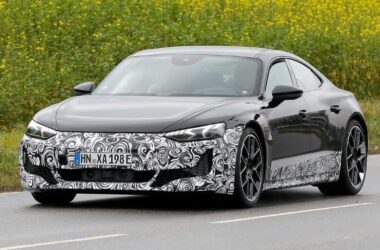In today’s economic climate where expenses continue to rise, the impact of inflation is particularly pronounced in the pre-owned automobile market. Used car prices have surged by as much as 40% within a few short years. This price hike has made it increasingly challenging to find an affordable, dependable used vehicle that can reliably transport you to your workplace and back.
Despite these soaring costs, many prospective buyers find themselves gravitating towards used cars due to financial constraints. In this context, purchasing a pre-owned electric vehicle (EV) appears to be an appealing choice. EVs offer various cost-saving advantages, such as reduced fuel expenses and lower maintenance costs. Additionally, you may qualify for a federal tax credit of up to £3,200 when you purchase an EV. Moreover, EVs tend to depreciate more rapidly than their traditional combustion-engine counterparts, enhancing the likelihood of finding a cost-effective option.
These compelling factors make a strong case for considering a used EV. Nevertheless, it’s crucial to exercise caution as the pre-owned EV market is still in its nascent stages. Although the day will come when acquiring a used EV is a no-brainer, that moment hasn’t arrived just yet. Here are some reasons why, for now, you might want to stick with conventional used gasoline or hybrid vehicles and reserve your EV exploration for the future.
1. Navigating the Unconventional Used EV Market
First and foremost, the used EV market is a peculiar landscape. Electric vehicles currently make up just about 1% of the total vehicles on the road. This means that many of the EVs currently in use remain with their initial owners, resulting in a limited selection of older models available for purchase. While early EV models like the Nissan Leaf can be found at relatively lower prices, these older models lack fundamental features, like effective battery cooling systems. This deficiency can significantly limit the practicality of a decade-old EV when compared to a gasoline-powered car of similar age.
On the opposite end of the spectrum, more recent EV models may be surprisingly expensive, sometimes even surpassing the cost of new models. A blend of supply chain issues and reduced production of new models has led some individuals to flip their EVs for profit. Approximately 17.5% of the used EV market consists of cars that are merely three years old and are priced nearly on par with new vehicles or, in some instances, even higher. While genuine bargains can still be found in the used EV market, navigating past an array of inexpensive yet faulty vehicles and overpriced flips can be a challenging endeavor. This market volatility makes opting for the relative stability of a gasoline-powered vehicle a prudent choice.
2. Older EVs and Potential Battery Concerns
Another reason to exercise caution when considering a used EV purchase is that they inherit the same limitations as their new counterparts, sometimes to an even greater degree:
a. Limited Charging Infrastructure: Depending on your location, finding an accessible and reliable charging station for your EV can still pose a significant challenge. A combination of insufficient charging infrastructure and the fragility of some charging units can make keeping your EV charged a less straightforward task.
b. Battery Degradation: EV batteries naturally degrade over time, losing up to 10% of their capacity within the initial five years and an average of 2.3% each year thereafter. While this degradation is anticipated and the battery should still function acceptably, a severely degraded battery can limit your driving range. Moreover, replacing an EV battery can cost upwards of £8,000. This isn’t a concern for conventional gasoline-powered vehicles.
Undoubtedly, electric vehicles represent remarkable technological achievements, and the day when purchasing one, whether new or used, becomes the obvious choice is on the horizon. However, for now, if you are in the market for a pre-owned vehicle, opting for an internal combustion engine-powered car can help you circumvent several concerns and challenges associated with the current state of the used EV market.









